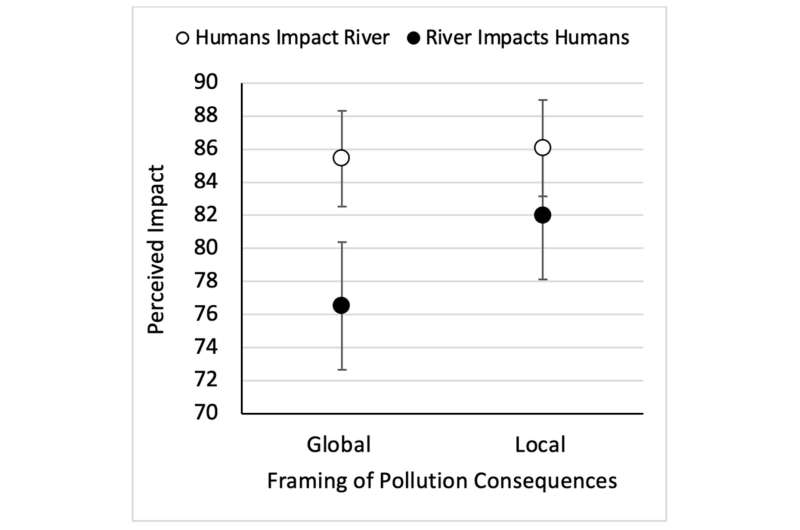Are we part of nature, or separate from it? How you answer matters

Think about a river.
Now, imagine that river is one you know. Maybe it's near your home, or perhaps it's in a place you've visited.
Take it a step further: That river is now the water source that nourishes your community. It is the reason your backyard garden yields juicy tomatoes.
As you moved through this thought exercise, the psychological distance between you and the river likely lessened. Did that make you feel more connected to the river?
It probably did, according to new research by Northeastern psychology and environmental science researchers. And, they found, that also makes you more likely to want to take care of the river ecosystem and prevent or clean up pollution there.
"It really matters, the way people understand and represent what they know about the world," says John Coley, professor of psychology at Northeastern and first author on the paper published in the journal Land. "So what we sought to show is that the degree to which people saw the relationship between humans and nature as reciprocal or as one-sided had implications for things like stewardship. Those who had this more reciprocal model indicated more likelihood to invest, more willingness to be a steward of the environment."
Solutions to environmental issues are "often not technically difficult," says Brian Helmuth, professor of marine and environmental sciences. "The tricky part comes in to get the buy-in from people and in the willingness to act."
So Coley, Helmuth and their colleagues decided to test how differently framed questions affected people's beliefs about stewardship and environmental responsibility. They employed an online survey which centered around a hypothetical polluted river in an urban area. Participants were presented with the scenario framing the polluted river as either having local impacts or global impacts, and they were asked about how responsible humans were for restoring the river, and what relationship humans have to nature and vice versa.
We found that most people understood that humans impacted the river, but fewer understood that the river impacts humans," Helmuth says. "And that dynamic was then correlated with the willingness to spend time or money or taxes."
But, think back to how your mindset changed when you shifted from envisioning a generic river to one in your neighborhood. "For the people who were presented with the local context, that asymmetry was reduced," Coley says. "They were more likely to say that the river has an impact on people, as well as people having an impact on the river. And the size of that asymmetry had downstream consequences for people's behaviors."
Ultimately, what the psychology professor and environmental sciences professor would like to determine is how to use this knowledge to shift how people see nature, from something separate from ourselves that must be protected to a system that humans are very much a part of—even in an urban setting.
"Understanding where people are right now can help inform how we help them to see the world in a different way, in one where nature is something that deserves to be protected both in its own right but also for motivated self-preservation as well," Helmuth says.
More information: John D. Coley et al, Beliefs about Human-Nature Relationships and Implications for Investment and Stewardship Surrounding Land-Water System Conservation, Land (2021). DOI: 10.3390/land10121293
Provided by Northeastern University





















